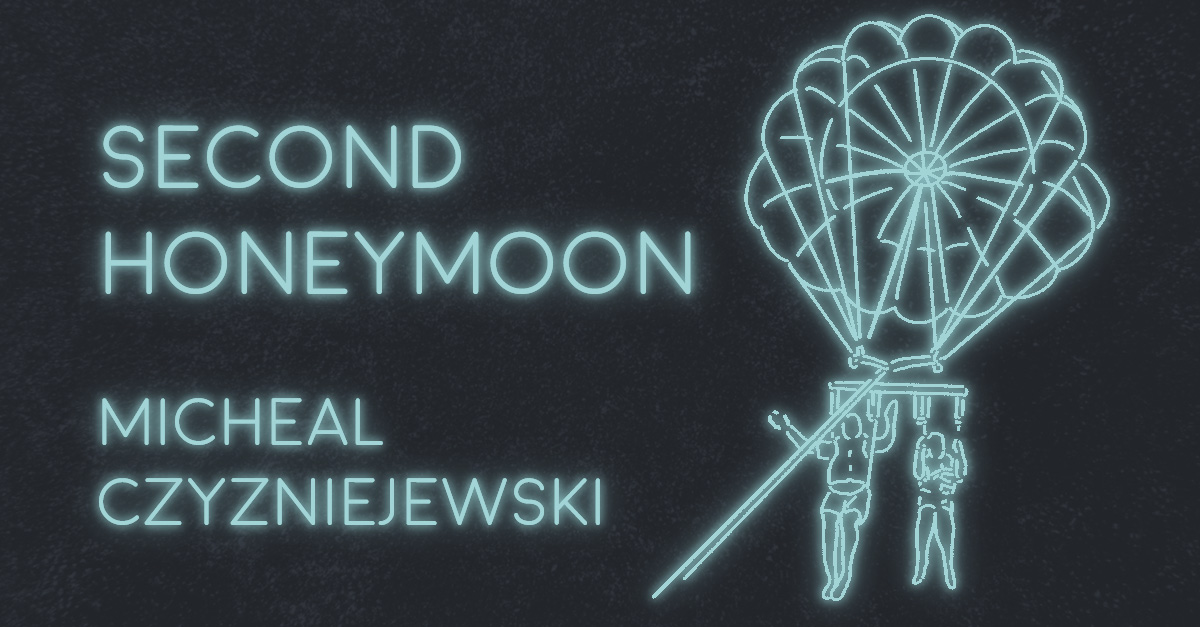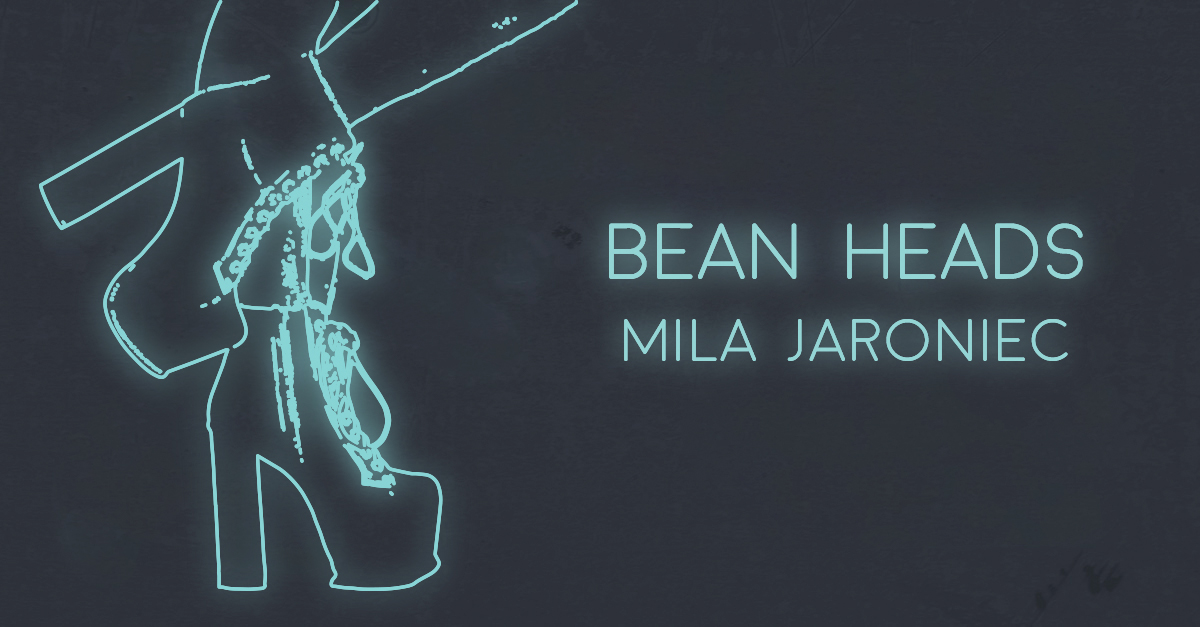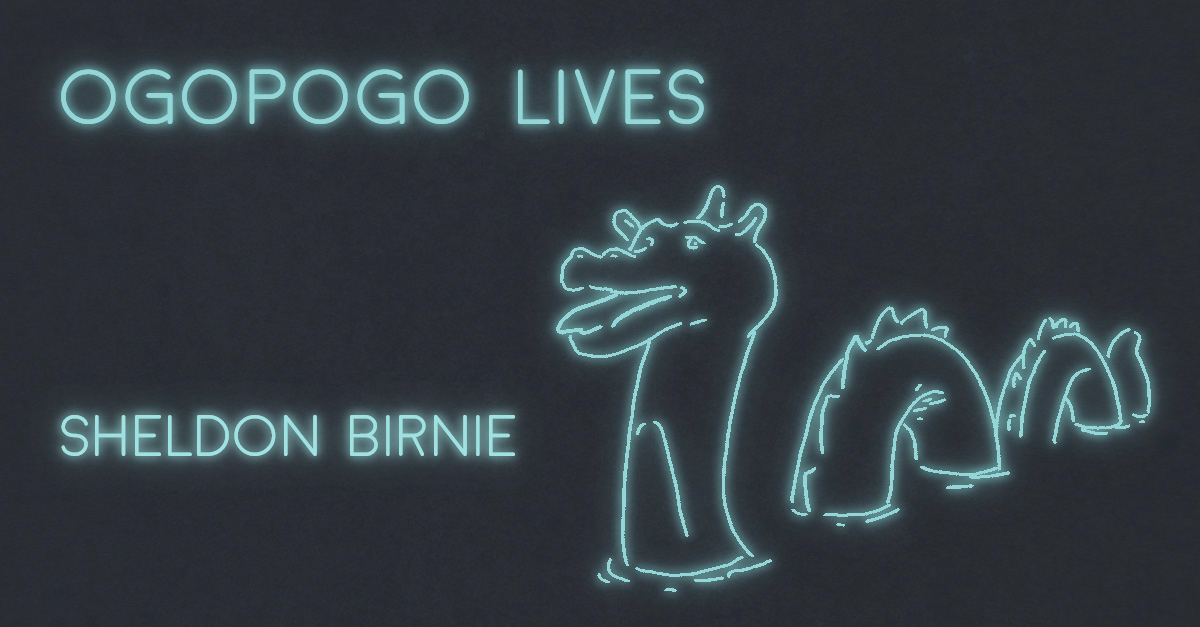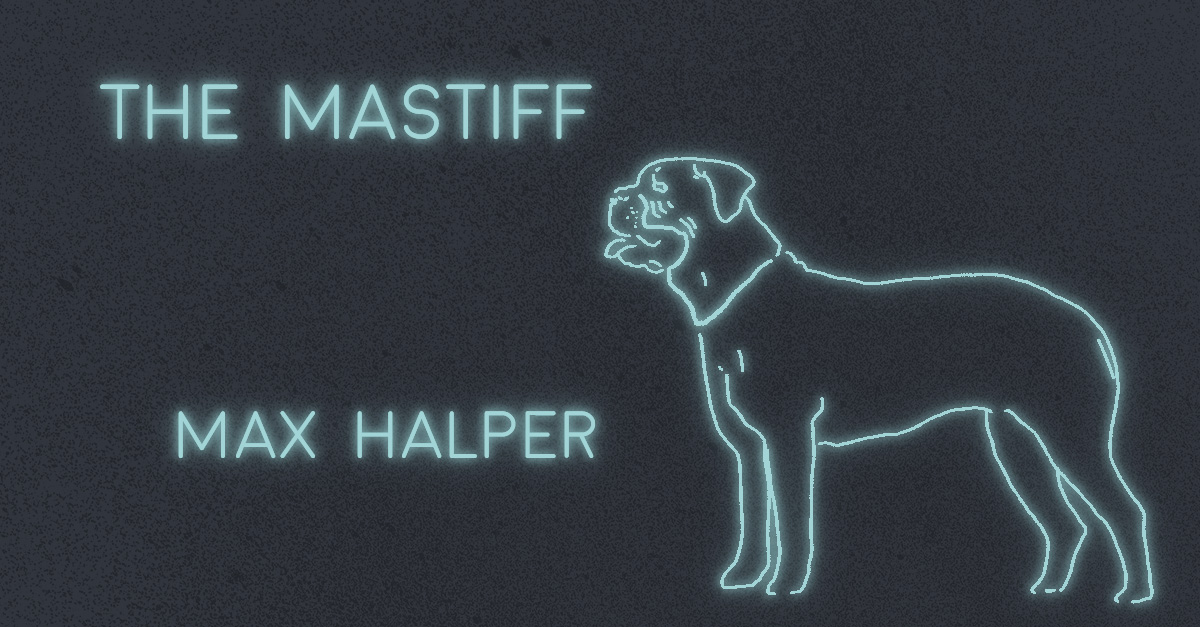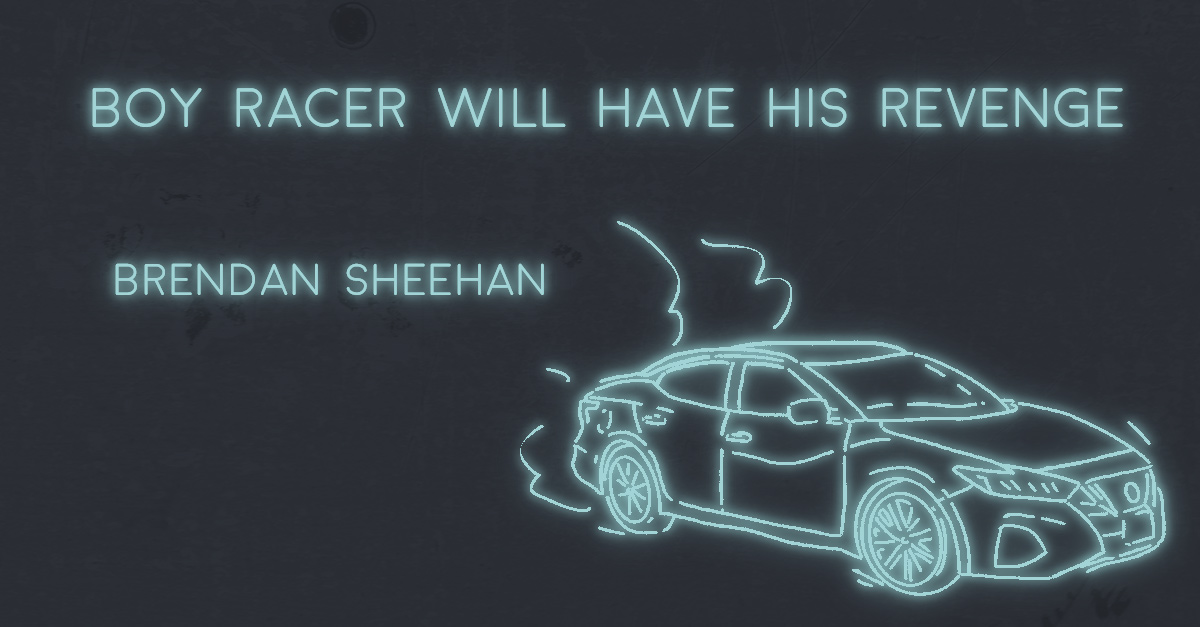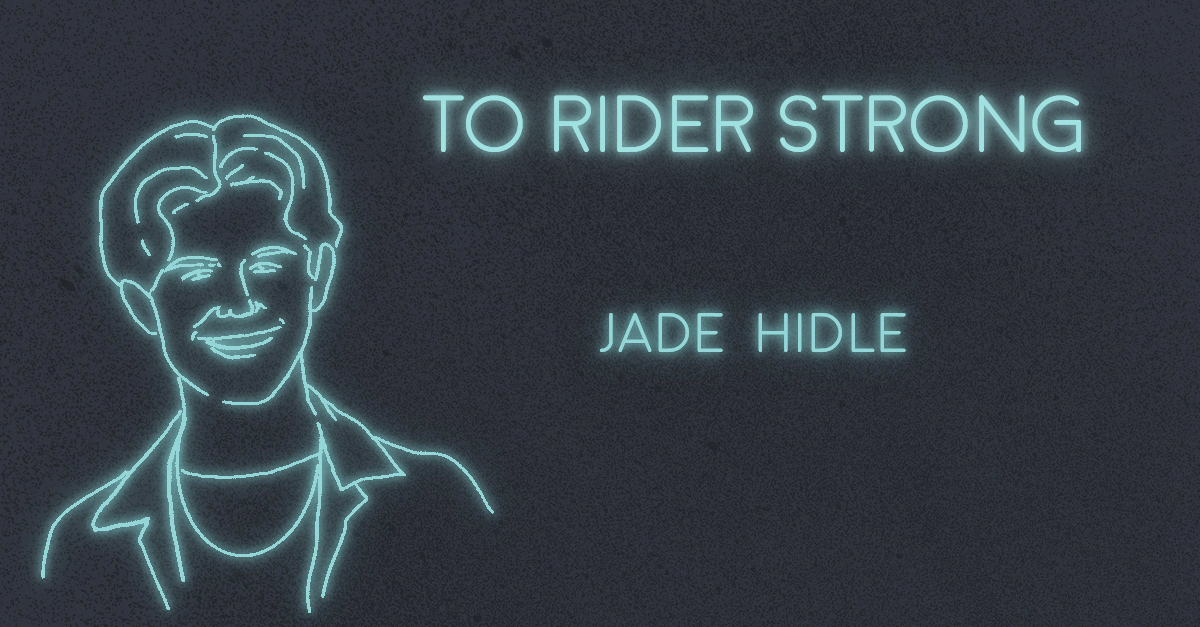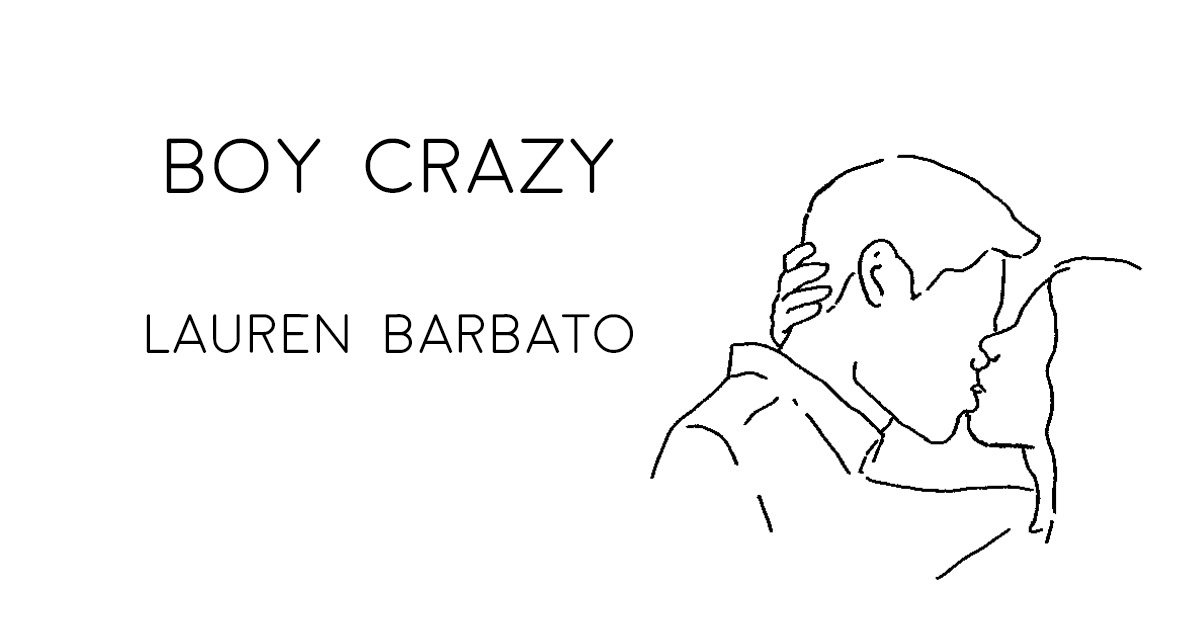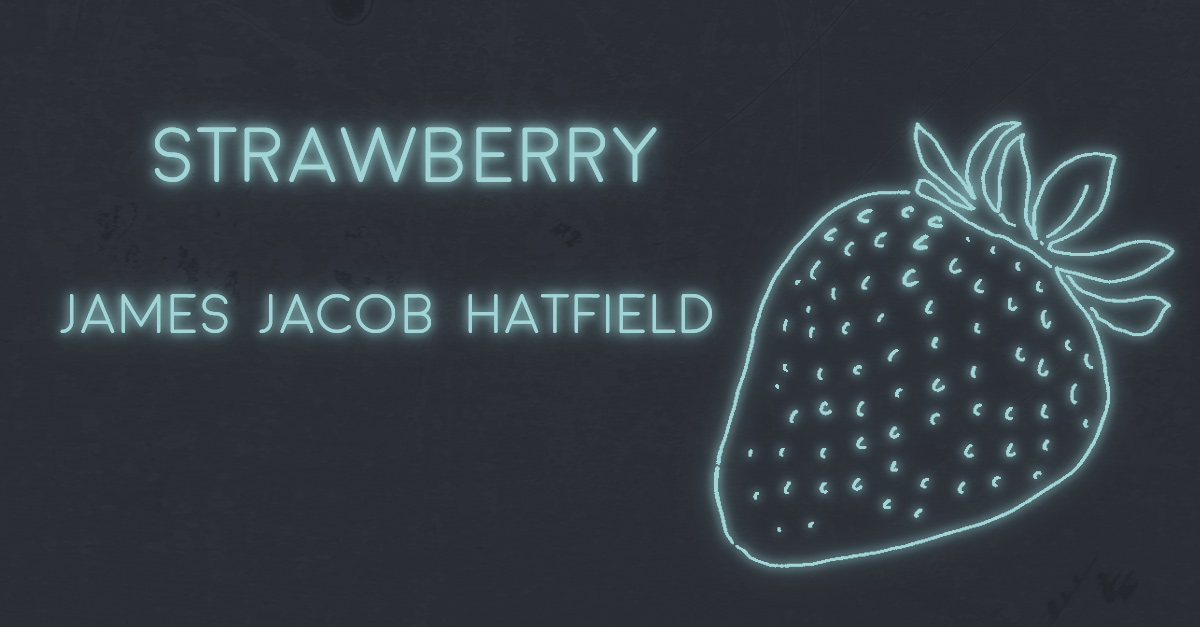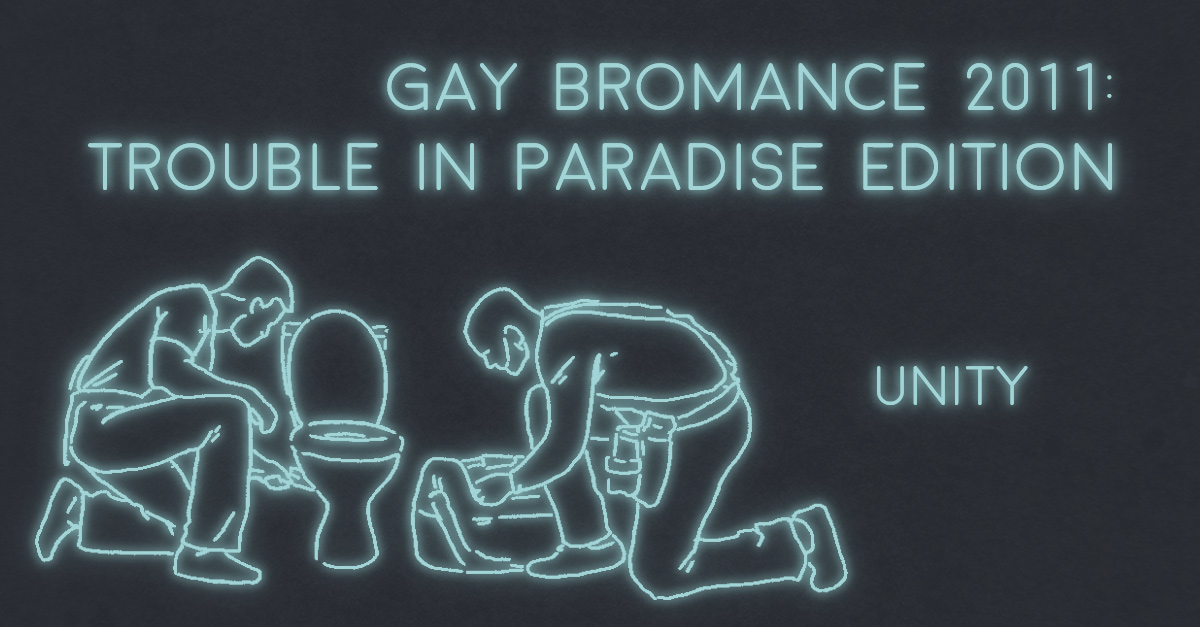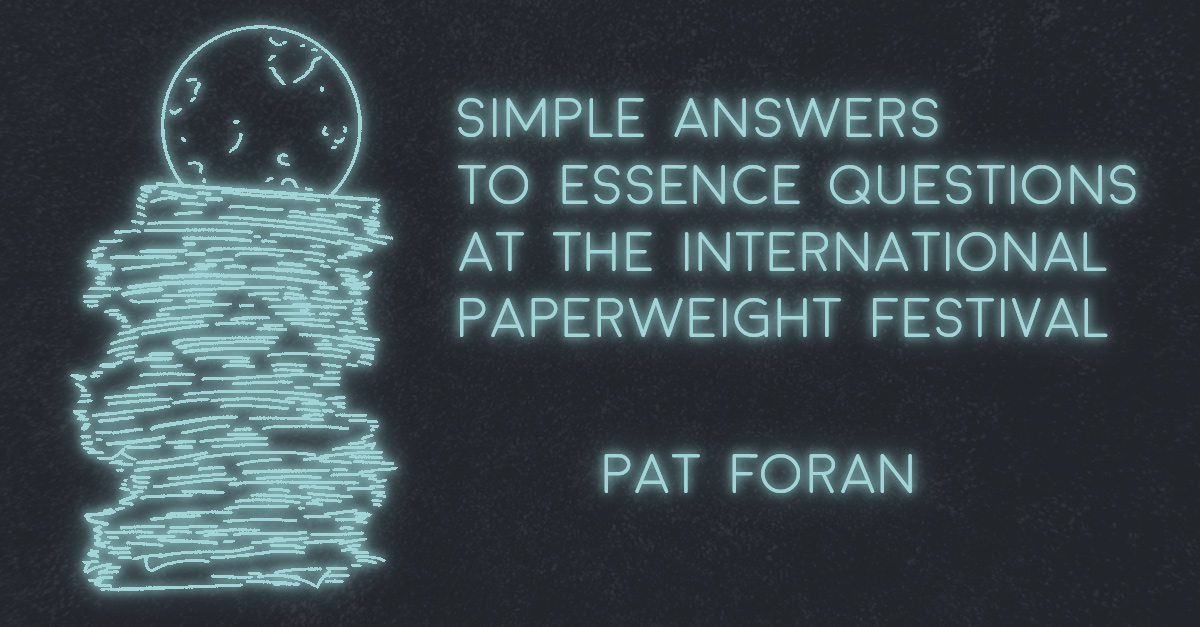The young married women at the conference upstate agree that it’s nice to be around someone so boy crazy. That’s how they say it: boy crazy.
The young married women help you flirt with Ben, the writer from Seattle via Georgia. They accompany you to the pricey cocktail bar downtown and conveniently leave early. Ben walks you down a sleepy street with few lights to your tiny cabin rental. You show each other your tattoos as mosquitos nibble your ankles.
In three years, you’ll be married, the young married women say. We want to come to the wedding.
***
Lawrence returns from his school-sponsored trip to France and says I love you. No, he doesn’t say it; he writes it on college-ruled paper. The note is tucked inside a black beret wrapped in a plastic Kmart bag.
You read this note on the bus, scrunched in the corner of the three-seater as your two best friends chat about the fight that broke out in gym class. You read the words a second, third, fourth time and flick your hoop earrings. From your seat, you can see Lawrence walking to his bus. Triumphant. You read the words a fifth, sixth, seventh time and memorize the way the L curls at the bottom, how the v attaches itself to the e.
You tell Lawrence the next day that he’s just your friend. You say it just like that: Just my friend.
Your grandmother spots Lawrence after Christmas Eve Mass. While standing in front of baby Jesus in the manger, she asks, Why don’t you give Lawrence a kiss? You turn away from her and baby Jesus and Lawrence, who still follows you around sometimes, almost reluctantly.
Roman is your first real kiss, three years later. The next year, you fuck his best friend on a camping trip in the Pine Barrens.
I want to punch him, Roman says. You sip beers by the community pool, your ankles rolling in the water. The best friend takes ten years to say, I’m sorry, but we’ll get to that.
Tyler is an architect-in-training who you meet the first week of college. You don’t want to let anyone know that you can’t remember your first kiss. It may have been on the quad, or the mosaic-tiled bench outside the library, or one of the lumpy red leather couches in the corner of the late-night coffee shop. You bring Hershey bars and cappuccinos to his windowless art studio; he leaves animated marginalia in all your paperbacks. You sleep next to each other for nine months but don’t sleep together.
You make out with the best friend when Tyler is in Italy with his family, leaving you at home for the summer in the suburbs. The best friend takes you to the park at midnight, where you kick off your rubber flip flops and crawl into the plastic tunnel connecting the twisty slide to the monkey bars. You find yourself on top of him in the tunnel, your tank top rolled to the waist. All you do is kiss. The best friend says he feels guilty, but you still don’t know why.
In this version, you are the cheater and you don’t believe it.
You choose not to believe it.
Scott likes to straddle your body and put himself in your mouth. He pushes you against a wall during junior year and leaves you there, still and silent. You get in your car and drive west on Pico Boulevard to wander around a mall with no money. You meet a Russian man in a coffee shop and accept an invitation to his Westside apartment.
You wake up with bruises lining your inner thighs. You take the long way home, driving south on the PCH until you end up in a biker bar at the edge of Orange County. Your friends don’t call or look for you because this is what you always do. You’re always out with a boy, they say when you return to the apartment smelling like stale popcorn and Marlboro Reds. This is just how you are.
Scott calls you the next morning, asks you out for lunch, but he never says he’s sorry. You break up with him at your spot, the Indian buffet on Vermont, and walk four blocks in the wrong direction.
In this version, you read Madame Bovary for class and cry when she swallows the rat poison.
You fuck the best friend on the floor of his parents’ basement. He’s twenty-five now and lives with his girlfriend. You’ve recently turned twenty-one. Rug burns coat your knees. The best friend opens the back door to smoke a joint. He tells you he’s applying to law schools in Los Angeles. You nap on blankets and throw pillows until 6 a.m. and when you wake, you think of Los Angeles.
You think you might love him if he lets you.
You forget the part where he’s in love with someone else.
The best friend never comes to Los Angeles, which is something you should’ve known. You spend the summer in the Southern California sun, writing some very strange flash fiction that contains the phrase foreign moths. What are they, these foreign moths? Tourists on autopilot? You say something potentially interesting, potentially cliché, about desire. That it needs to be replenished. You are a foreign moth spiraling with desire.
You don’t want to be a foreign moth.
The next trip home, you don’t see the best friend, who texts you constantly even though he’s with his girlfriend and her family. He’s always tied up with something. On Christmas Eve, you chain-smoke in your parents’ basement and find a photograph of your grandmother, dated 1946. She looks like a Polish Lauren Bacall. She looks like a woman who would have said, I love you to many boys and left them in the morning.
A boy cums on your chest and tells you to leave.
A boy lifts you up, props you against a wall.
A boy kisses your roommate but follows you to your bed. This boy says you’re sweet.
This boy refuses to leave.
Erik texts you while you’re naked in Ted’s bed. He writes something about your nipple hair, how you should trim it for the next guy. He only texts you now to keep track of your movements on that short stretch of highway between Los Angeles and Long Beach. You throw your phone onto the floor and smile when Ted enters the room with a glass of whiskey.
In this version, you are twenty-two with a man twelve years your senior. You like to think you are in love with him.
She knows she is in love with him.
He knows he is not in love with her.
You have to text Erik when you accidentally make a baby, and when you accidentally make a baby, there are no congratulations. When Ted finds out, he’s relieved it’s not his. He leaves town on holiday two days before your abortion.
Erik drives you to the appointment, watches you pass through the clinic’s wide metal doors. He roams the nearby strip malls as a counselor presses you about your boys. You say you’ve slept with twenty, maybe. You say you’re the eighth woman Erik has gotten pregnant, definitely.
He is a bad boy, the counselor says.
And you are a nice girl.
You think about Ted often when you’re with John, the Ph.D. student. You get a job in Beverly Hills and drive past Ted’s house in Culver City. You think about him at the movies, during Oscar season. He texts you one night and invites you to the karaoke bar across from the Sony lot. You say you can’t, you need more notice, but you do not say you’re living with John. You know Ted understands.
He keeps inviting you.
In this version, you are not the cheater but you’re wondering.
You do the right thing and you’re conflicted.
Don’t be a foreign moth, you think. Be a butterfly.
But you still feel like a foreign moth, fluttering on an enclosed, darkened porch.
The summer between L.A. and Boston, the best friend kisses you on the empty Shore boardwalk at midnight. It lingers, it’s gentle, and that’s all it is. He mentions breaking up with his girlfriend; you don’t mention John. The best friend drives you to your parents’ house and follows you up the driveway. You kiss his cheek. Thank you, you say. Good luck with everything.
In this version, you’re the cheater but you’re not the only one.
You think it may work this time.
In Boston, you live with John in a one-bedroom apartment in a narrow brownstone on the north slope of Beacon Hill. You fuck John for the first time in six months. Two hours later, in your work cubicle, rubbing your thighs in those scratchy wool slacks, you reread the email from the best friend, who’s in Paris.
Smoking a cigarette on a balcony and thinking of you.
You visit Roman at the MIT radio station, where he hosts a late-night show that plays only Scandinavian electro-pop. He tells you the best friend got engaged in Paris. You walk along the Charles on the Cambridge side, view the jagged Boston skyline for the first time, and decline calls from the best friend.
You fuck Leo in his tiny room on the third floor of a Victorian house in Jamaica Plain. It’s easy to lie to John about this as you—still new to Boston—are really into making friends: a work friend, a girl friend, a just-a-friend friend.
You lie to John for three more weeks, and you only tell him because he finds you, still in your tights and sheer pink shirtdress, on the stiff Ikea couch. A pillow covers your face. John asks if you are okay. Have you ever cried in front of him before?
In this version, you are the cheater and it did work.
You are the cheater and you’re sorry.
Really, you’re relieved.
Leo likes that you’re taken. He moves in shortly after you move into your Brighton studio. He goes through your phone one morning, finds a stray text from Ted. He curses you, curses Ted.
Hey, Ted texts, how’s life?
Leo notices that you’ve changed all your passwords. He says I love you with a high-pitched inflection. He questions his love for you or, really, he is questioning yours.
The best friend texts you constantly. He thinks about you sucking his dick at work. He thinks about fucking you on the copier. You make me so fucking hard, he writes.
So hot, you write back.
You file unemployment benefits and wonder about everywhere else you could live. A studio in Brooklyn or Jersey City, commuting to a cushy media job in the city. You’re tired of Leo, who throws up all along Commonwealth Avenue as you drag him home each night.
You travel to Paris and a Frenchman pulls you into the doorway of an unlit Montmartre storefront. His name, you can’t remember. Damien? Guillaume? He guides you by the elbow toward the main boulevard, past the Cafe des Deux Moulins, the Amelie cafe, where he bought you beer and asked if you were an American Evangeliste. He whispers je t’aime je t’aime je t’aime. Oh, these Frenchmen. How much, you think, they sound like Leo. How much, you think, they move like the best friend.
A boy wants you to cum for him.
A boy wants you to cum on this dick.
A boy grabs your throat, covers your mouth.
A boy hooks his fingers past your bottom teeth. Take it, he says, and you bite down.
You travel to L.A. because you’ve decided that you may love Scott. You tell him this as you stumble across Hyperion Avenue toward a comedy club where Scott is performing. Scott tells you it means a lot, but he never says it back.
Ted texts you six days before his wedding: Hi, how’s life? Ted is marrying a woman in Connecticut. A woman his own age. You know this because you Googled him the other month.
She likes to think he is in love with her.
She knows he is not in love with her.
You lean against the popcorn-textured sides of Scott’s balcony and count the Our Lady of Guadalupes dotting front stoops. You know you can circle these streets forever: Fig, Avenue 50, Sunset Boulevard. Remember, when it used to be Vermont, Hoover, Adams? You could circle these streets for decades without ever claiming them.
Ted doesn’t respond to your text message. How long will you keep waiting?
You delete his number; Scott’s too.
You move to North Jersey, sign up for an online dating profile, and date people you’ll never see again. Hi, you say, how are you? The coffee’s not that strong here, is that a Brooklyn thing? You ask them about their profiles, how they said they were looking for someone who wears cute, not boring, underwear. Are boy shorts too boring? What about gray cotton briefs? Do you prefer nylon and lace? You don’t own any matching sets, shop mostly at Marshall’s and TJ Maxx. Thank you for calling me pretty, you say, but you wouldn’t like my underwear.
A boy wants to hear I love you.
A boy wants to cum with you.
A boy says, Be happy, you deserve it.
That boy wants to make you bleed.
***
You drive Ben to New York City. It rains, and you forgot an umbrella, and your white cotton dress, embroidered with gold and bronze lizards, quickly becomes soaked. Ben buys you a hot dog and you wait out the summer storm beneath a canopy of scaffolding. You’re sure he can see your mismatched bra and panties through your cotton dress, which now clings to your thighs.
Post-storm, you take Ben to the Strand, where you press against him in the corner of the book stacks. You show each other the books you’ve read and always wanted to read. You wander the Village, pointing at million-dollar brownstones. The city is sweaty and hazy but twilight still breaks through, coating the Hudson in pink dust. Now you and Ben are sitting on the railing, scoping out boats, and you try to remember all of this so one day you can say I had this moment and it was romantic in all the textbook ways.
You never get that kiss: The thing you thought you wanted.
Ben sends you a book, and you send him one back. You write a cheesy note, something about being students of light, which you stole from another, better writer. You hope he doesn’t judge your marginalia, which you once thought was clever but now just seems silly.
You go to a friend’s wedding and drink Chardonnay alone on a steep hill overlooking lower Manhattan. Why don’t you invite Ben? Your mother had asked. But Ben is still searching for a job in Seattle and besides, a teacher once told you don’t put all your eggs in one basket. That teacher never wanted you to get married.
Sometimes, you still text Ben fragments of poems or a quote you really like. There are always buzzwords like weight and distortion. There’s always one about sadness and memory and the color blue.
On the way home from the wedding, you drive north on Route 35, trace the rolling hills along the shore. You pull over at WaWa, throw up in a parking-lot shrub, and buy a soft, salty pretzel.
Now you date a man named Hector. You hope he never buys you a beret. He doesn’t write I love you, but he says it. A little too soon. You don’t say it back for another month.
A little too soon.
And things with Hector are good. You fall asleep like old married couples, open books at your sides. You wake like new lovers. It’s comfortable and exciting and you think, maybe you’re doing this right.
You meet Ben at another conference. The conference is in Washington, D.C., where the best friend lives. On the drive down, you think about texting the best friend, even though you haven’t talked in over two years. You don’t want to see him, but you like the idea of seeing him.
The last time you saw the best friend, you were in D.C. for yet another conference, this time during the heart of summer. You meet the best friend at a sports bar in Tarrytown, where he introduces you to Bri. The best friend is getting married in six weeks, and Bri is not his fiancee. Bri talks in the plural, everything is a we, and you sip your beer slowly to curb a smile as she tells you about their plans to go kayaking in the fall and snowboarding in the winter.
Oh really?
You take the best friend onto the smoking patio and tell him he’s in trouble—a line you always wanted to say to a cheating man. The best friend explains that Bri had his abortion last March. He drove her to the clinic and paid for the procedure. You are, briefly, jealous. I’m sorry, the best friend finally says.
Oh really?
On that Amtrak ride back to Jersey, you keep a running list of cities you cannot travel to: Los Angeles, Paris, Boston, D.C.
But now you are traveling to D.C., driving south on I-95, and something tells you to text Ben. You bump into him at the convention center later that day. He’s shaved his beard, gotten new tortoiseshell glasses. He looks thinner and healthier. You know he is scanning your weight gain, the purple circles swelling under your eyes, your gray hairs sticking up like twisted wire. He listens to everything you say, laughs when you know he shouldn’t. He’s being polite.
Your friend says Ben has a good way about him.
You know you said it too soon.
Ben invites you for drinks in Logan Circle and your knees touch beneath the table—a habit, not an accident. You never mention Hector. You want to kiss him, but something about the way Ben holds himself signals that he knows. He gives you two hugs and makes plans for the next day.
In this version, you are not the cheater and you’re wistful.
You are awake at 2 a.m. in the hotel lobby, sipping a Manhattan diluted from ice.
You are waiting four hours for the hotel Starbucks to open.
You scroll through Facebook on your phone and see random remembrances to a man you met only several times.
Breck wanted to produce your movie, or so he said, back when you were twenty-three. He invites you to a mid-priced Mexican restaurant on La Brea to talk shop. He loves your script, your personality, and your eyes. He has three sons and a fiancée. He gets you drunk off margaritas. You aren’t sure if he read your script.
Now his friends are posting articles from an Arkansas news source: Man found dead after falling through fence at a construction site. Victim stopped twelve times for public intoxication since 2009.
You pause your scrolling. You had no idea about his drinking, about all these different Brecks. You could be cliché. You could say we never know another person. That, in the end, we’re just ourselves.
You text Ben goodbye and drive back to New Jersey.
In the spring, Hector stands behind you each night at the bar but never says a word. He retracts his I love yous. He lies on your couch with his forearms pressed over his eyes. This is not enough, he says. He needs more sex. He needs it every night.
Should this really be that complicated?
Hector accuses you of flirting at the bar. He yells at you in front of his friends, who laugh as you trip on your way out. He follows you home but doesn’t speak. You shout at him. What are you shouting? You fall fifty feet from your front door, into an asphalt pit that was once a sunken basketball court or, maybe, a shallow public pool.
Leave me alone.
Why are you crying?
And on the pavement, in this shallow pool or pit or whatever it is, you think of Breck. You like to think this is different; the nouns and pronouns have changed. Woman falls into asphalt pit at Newark apartment complex. Woman chips tooth, bleeds from lip. You like to think that in this version, you are not yourself.
Leave me alone.
Hector leaves you alone.
And a boy no longer follows you home. A boy no longer wants you to cum on his dick.
A boy no longer makes you scream.
A boy lets go, and so does another, and another.
A boy no longer covers your mouth, but Shush, the boys still say.
Shush.
